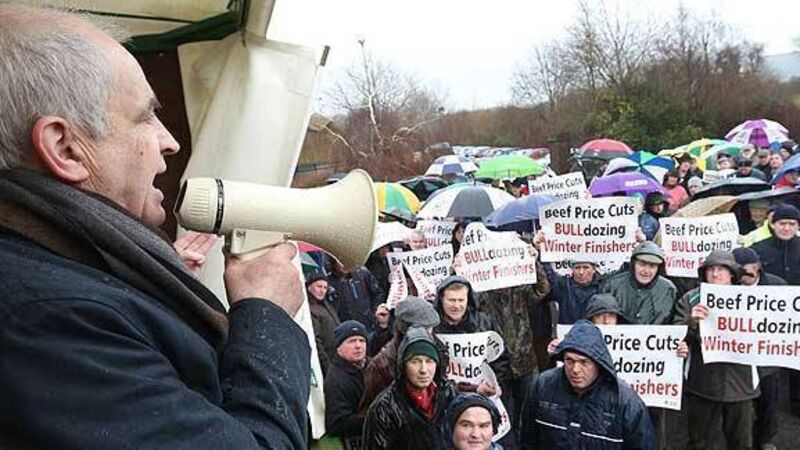24-hour beef price protests

They will maintain a vigil outside the plants overnight and into Tuesday afternoon in a major escalation of their campaign on cattle prices.
It will be the latest in a series of protests staged by farmers at locations countrywide in recent months.










